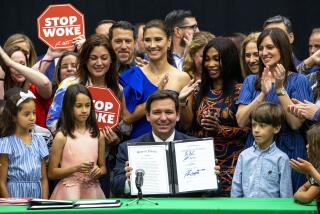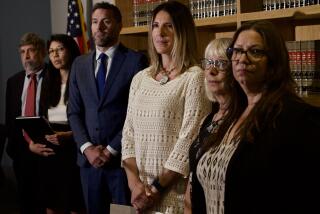Supreme Court upholds Michigan ban on affirmative action

The Supreme Court on Tuesday upheld Michigan’s ban on the use of affirmative action in state universities.
WASHINGTON—The Supreme Court upheld Michigan’s ban on the use of racial affirmative action in its state universities Tuesday, ruling that voters are entitled to decide the issue.
The 6-2 decision clears away constitutional challenges to the state bans on affirmative action, which began in California in 1996.
Justice Anthony Kennedy, speaking for the majority, said the democratic process can decide such issues. “This case is not about how the debate about racial preferences should be resolved,” he said. “It is about who may resolve it. There is no authority in the Constitution of the United States or in this court’s precedents for the judiciary to set aside Michigan laws that commit this policy determination to the voters.”
DOCUMENT: Read the court’s ruling
In 2003, the high court upheld an affirmative action policy at the University of Michigan Law School. But three years later, the state’s voters adopted Proposal 2 by a 58% to 42% margin. It said public colleges and universities “shall not discriminate against or grant preferential treatment to any individual or group on the basis of race, sex, color, ethnicity or national origin.”
But that policy was challenged as discriminatory by two groups that had advocated for affirmative action. And the U.S. Court of Appeals in Cincinnati declared it unconstitutional on the grounds that it took away a policy that had helped minority students.
Tuesday’s ruling is not a surprise, since a majority of the sitting justices have been skeptical of affirmative action. Justice Stephen G. Breyer, who had supported affirmative action in the past, concurred in the ruling, saying the issue could be decided by the voters.
Justice Sonia Sotomayor delivered a lengthy dissent which she read in court. She said the court had turned its back on earlier rulings that prohibited the states from withdrawing remedies for racial discrimination. The Constitution does not “give the majority free rein to erect selective barriers against racial minorities,” she said. Her opinion cited the steep decline in the percentage of black and Latino students who were admitted to UCLA and UC Berkeley after the passage of California’s Proposition 209.
Justice Ruth Bader Ginsburg agreed with Sotomayor, while Justice Elena Kagan sat out the case.
Twitter: @davidgsavage
More to Read
Start your day right
Sign up for Essential California for news, features and recommendations from the L.A. Times and beyond in your inbox six days a week.
You may occasionally receive promotional content from the Los Angeles Times.







